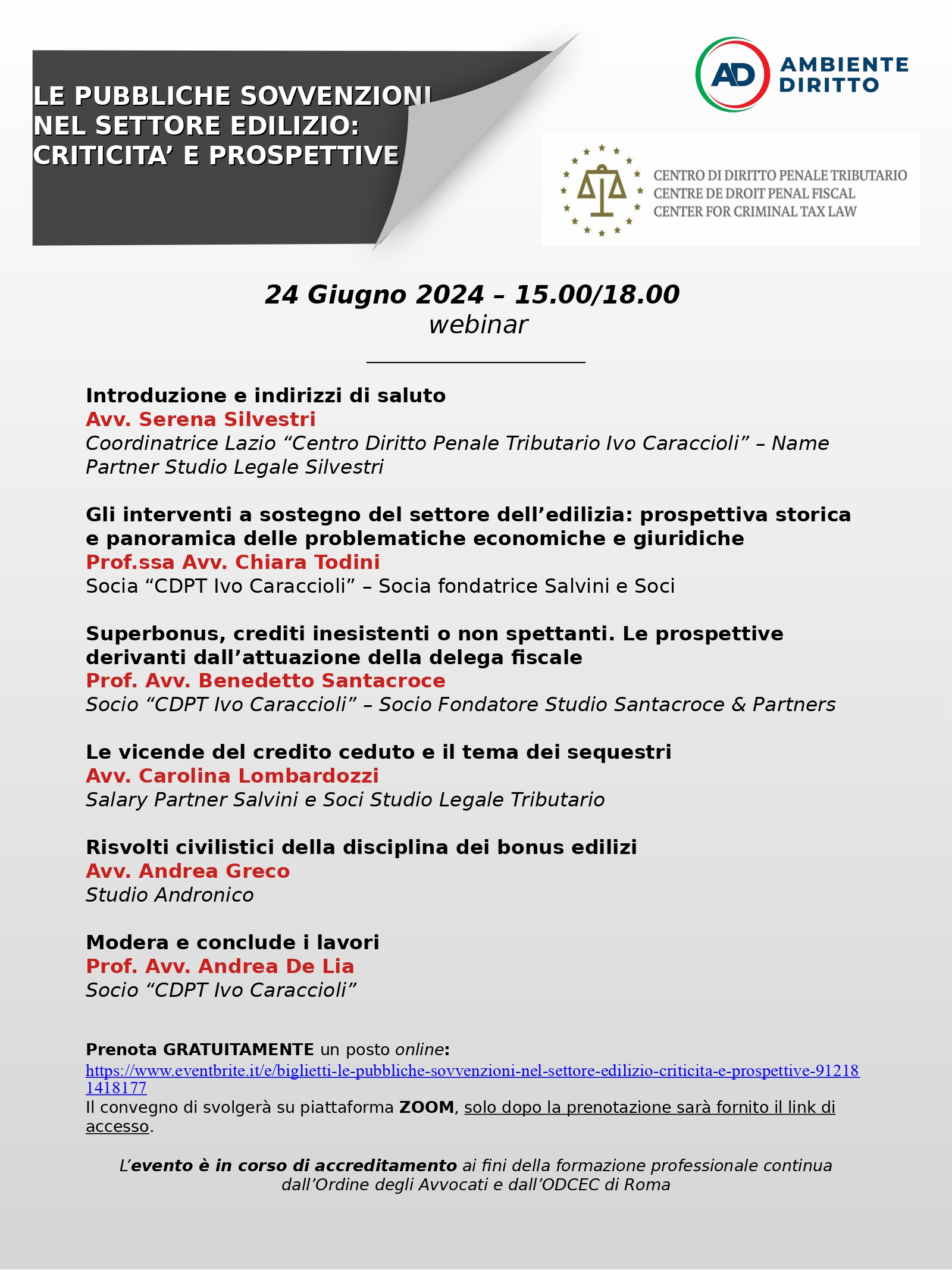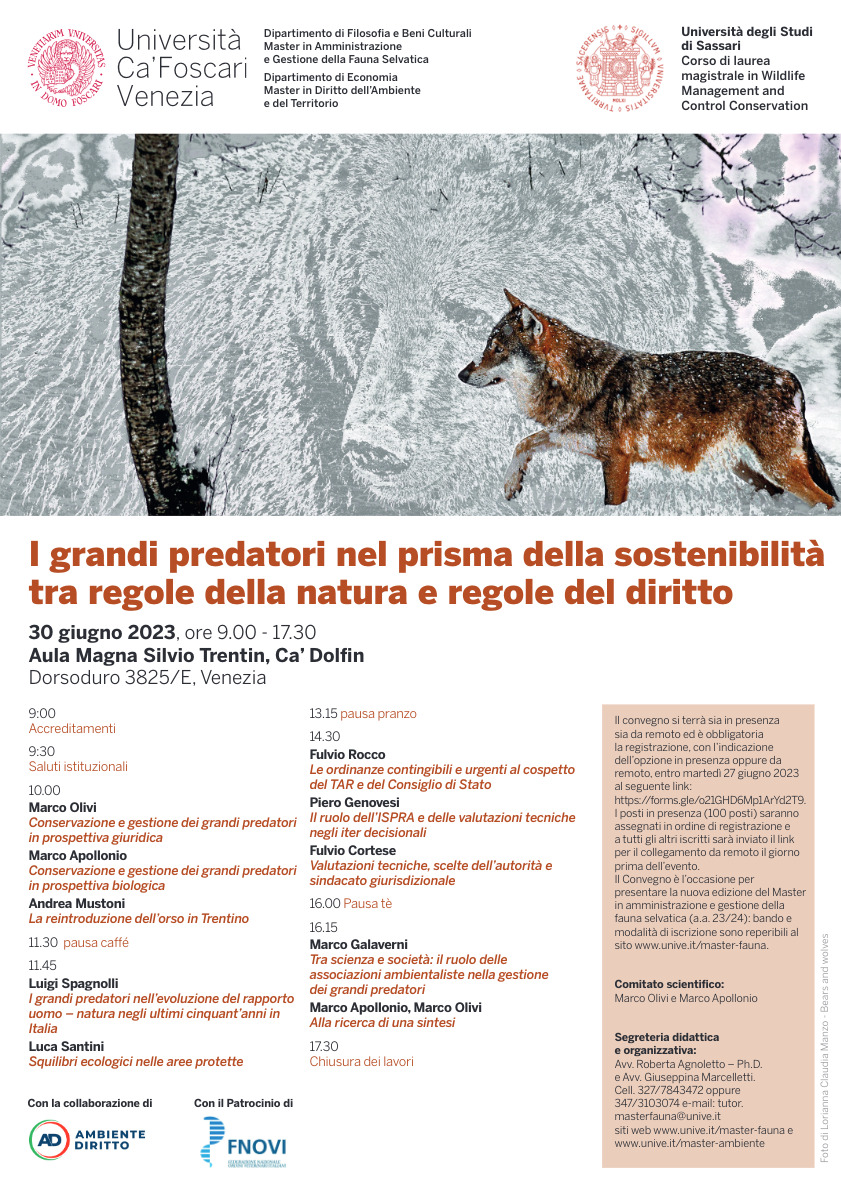______________ AMBIENTEDIRITTO ______________
EMERGENZA SANITARIA E SISTEMA DELLE FONTI:
decretazione d’urgenza e molteplicità degli atti normativi nella gestione della pandemia da COVID 19.
Caterina Aquino
Abstract
IT Il primo atto ufficiale del Governo per arginare l’emergenza è stata l’ordinanza del Ministero della Salute del 30 gennaio 2020 con cui è stato interdetto il traffico aereo dalla Cina Nello stesso giorno l’OMS ha dichiarato che il Covid 19 sarebbe una “Public Health Emergency of International Concern”. “L’emergenza – e cioè il fatto che rompe la regolarità della vita sociale che il diritto cerca di descrivere con il linguaggio che gli è proprio – intesa come fonte dell’eccezione diventa, per forza di cose, un discorso sull’ordine giuridico, e sul potere che ne sta a fondamento: solo, visto a contrario. L’eccezione, insomma, prova l’esistenza del sistema attraverso la forza del fatto compiuto”. Un sistema di fonti emergenziale che può essere classificato per più fasi, muovendo inizialmente dal ricorso al vigente codice della protezione civile, che gradualmente viene adeguato alle circostanze di fatto attraverso decreti legge. In particolare, il primo di questi decreti legge stabilisce una casistica evidentemente non tassativa per l’adozione dei provvedimenti limitativi di libertà costituzionalmente garantite, alimentando numerosi dubbi in merito al rispetto delle riserve di legge poste in essere dal Costituente proprio a salvaguardia dei diritti di libertà, lasciando, così, margini di intervento alle autorità locali e regionali senza limitarne la portata. Il ruolo svolto in questa drammatica circostanza dal Presidente della Repubblica ha fatto emergere la rilevanza delle sue dichiarazioni che si sono rivelate cruciali e determinanti sotto diversi aspetti.
EN The emergency decree during the pandemic period is of particular relevance. The first official act of the Government to stem the emergency was the order of the Ministry of Health of 30 January 2020 with which air traffic from China was banned, on the same day the WHO declared that Covid 19 a “Public Health Emergency of International Concern “. In this first phase, the Government tried to establish coordination rules, but with little effectiveness.. There has also been an attempt to set a distinction for the Regions as well. Pursuant to Article 3 of Legislative Decree no. 19 of 2020 it was specified that “the regions, in relation to specific supervening situations of aggravation of the health risk occurring in their territory or in a part of it, may introduce further restrictive measures, including those referred to in Article 1, paragraph 2, exclusively in the context of productive activities and those of strategic importance for the national economy “. But in reality, both regional and municipal ordinances have continued. It should be noted the decision-making speed sought in the Prime Ministerial Decree, the stubbornness with which the Executive Administration intended to proceed, through the aforementioned regulatory instruments, in order to meet the objectives set in the source acts of primary rank and the general “progressive decay” of the primacy of the law, have, in reality and more than emphasized the reasons for the crisis of the principle of legality, required, indeed, demanded its full application, as the quintessence of the rule of law. In this period we are witnessing significant limitations of many of our rights: personal freedom, freedom of movement and residence, religious freedom, the right to work, freedom of economic initiative, the rights to education and culture, rights related to justice, the right to vote, the functionality of the public administration. The role played in these dramatic circumstances by the President of the Republic has highlighted the importance of his statements, that have proved crucial and decisive in several respects.
SOMMARIO: 1. Modi e forme di esplicitazione dei presupposti ex art.77 Cost. nella corrente emergenza indotta dal COVID-19 – 2. La limitazione dei diritti di libertà costituzionali nel periodo pandemico – 3. Emergenza e sistema delle autonomie – 4. La sentenza della Corte Costituzionale n.198 del 2021 – 5. I poteri “intromissivi” del Capo dello Stato nella corrente stagione emergenziale e la attualità della teoria espositiana del Presidente della Repubblica “reggitore dello stato in tempo di crisi”: con specifico riferimento alla possibile espansione della funzione e del ruolo presidenziali, segnatamente in sede di emanazione dei decreti legge.
Scarica allegato





 AMBIENTEDIRITTO.IT EDITORE
AMBIENTEDIRITTO.IT EDITORE